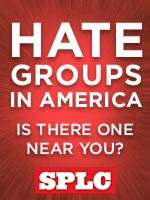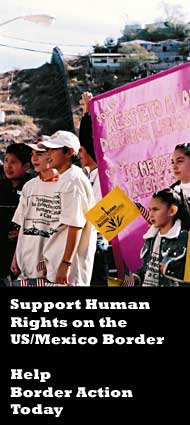I expected a day like yesterday, but then I ran into Chris Hedges.
Two concepts, one that has never occurred to me, and one that is currently on the front burner in my own life, smacked me in the head, pretty much derailing whatever little task list I had planned for this day.
But about the one that I’m dealing with right now, in my own life.
I haven’t seen it put so well as in this excerpt from Hedges’ review for Truthdig of John Gray’s Black Mass: Apocalyptic Religion and the Death of Utopia:
What Gray fails to grasp is the transcendence and power that comes with achieving the moral life, a life a realist has to concede is absurd. There is a meaning to existence. It is found, as Fyodor Dostoevsky, Joseph Conrad and Vasily Grossman knew in simple, blind acts of human kindness, especially towards the outcast and the stranger. It is discovered when we confront and acknowledge the inevitable chains and limitations of human nature but do not completely succumb to them. These small acts of compassion, never free from the taint of self-interest, do not make the world a quantifiably better place. We will not be rewarded for them. We will not save ourselves from evil, suffering and death. But these acts mean that we have, if only for a moment, felt what it means to be fully human. We have reacted not as animals in a herd, but as individuals who rose above our baser instincts and the clamor of the mob to defy hatred and bigotry and to cherish life. These acts of compassion allow us to become conscious, if only for a moment, in an unconscious world. [Emphasis added.]
I live in Arizona, where the “border crisis” is a very present personal moral challenge. Like many others, I am struggling with the problems and opportunities offered by The New Sanctuary Movement. My first instinct is to run away. I am too easily confused by legalities, when the transcendent truth, as Tex Sample recently pointed out to me, is that we have a legal system that frequently achieves technical legality but often doesn't achieve justice.
Anyway, I’m still on the periphery of The New Sanctuary Movement-Arizona, a project of Intefaith Worker Justice. I’m not yet on the front lines, so I don’t want any confusion about the strength of my character on this issue.
What I do want to say is this. The one reliable, fail-safe, within-myself touchstone that I know I have for getting clear about human justice issues is my queerness.
As I've written about before, recently I had to confront Sheriff Joe Arpaio’s hotline for reporting “illegals.” My off-the-top reaction was, “Well, I wouldn’t report anybody myself, but what’s so wrong with that?” However, once I thought of my own experience on the other side of the border, so to speak, I understood immediately what’s wrong with that. A lot.
Arpaio’s hotline is immoral for at least three big reasons, all of which boil down to doing serious damage to what Martin Luther King, Jr. called “the beloved community.”
One, it targets certain human beings in a way that encourages racist profiling. Though there is no way to tell by looking who is an “illegal immigrant” and who is an American citizen, we are being encouraged to act as if there were and follow our worst inclinations.
Two, it reduces human complexity—our individual humanity, the one thing that lets us recognize each other as embodiments of the Sacred—to one mere action, and that one is of highly questionable “illegality.”
Three, it injects fascism directly into to our neighborhoods. Hotlines like this institutionalize anonymous ratting, which enables individuals and communities to sustain the myth of superiority: Ratters never have to confront the consequences of their actions.
The assumption behind the hotline is that every caller will be right and all will call for legitimate reasons only. Meanwhile, however, there is no accountability whatsoever for the consequences of simply being wrong, let alone for being intentionally mean, delusional, racist, vindictive, etc. When there is no accountability, we humans let our nasty side out to play in what soon becomes an endless spiral of suspicion, ratting, revenge, violence, and community breakdown. Didn't we learn all about this from the French Revolution and Nazi Germany? Ain't we been there, done that?
Finally, by shifting responsibility for immigration law enforcement to average folks who are neither trained nor authorized (read given structures of accountability and procedure) to take them on, it makes us all auxiliary vigilantees. Which brings us back to fascism.
However. I know that I wouldn’t get this if I hadn’t personally been on the receiving end of the Arpaio vigilantee mentality. My queerness, in a culture that perceives gay and lesbian people as outlaws, through projection and propaganda, is their "illegal alienness" in a culture that perceives undocumented immigrants in the same way.
Which brings me back to The New Sanctuary Movement. I believe that Hedges is right:
There is a meaning to existence. It is found, as Fyodor Dostoevsky, Joseph Conrad and Vasily Grossman knew, in simple, blind acts of human kindness, especially towards the outcast and the stranger. It is discovered when we confront and acknowledge the inevitable chains and limitations of human nature but do not completely succumb to them.
When the Sanctuary Movement sticks to a core principle from all great religions – that we are called to give our best to -- TaDa! --none other than the stranger and the outcast--and does not allow itself to exploit people in the process of creating public education moments, then it gives us a personal opportunity to
[rise] above our baser instincts and the clamor of the mob to defy hatred and bigotry and to cherish life. These acts of compassion allow us to become conscious, if only for a moment, in an unconscious world.
Two last thoughts. The reason for our myriad personal differences may then be that, if they are lived out fully and considered intentionally (a big if), they become the thing that lets us discern the true difference between mere legalism and justice, and give us the courage to act on that insight.
These days I often feel powerless to stop the BushCo juggernaut of fascism, greed, brutality, and violence that’s rolling over our country at high speed. What my personal struggle suggests to me--still, yet again, one more time--is that we are most powerful change agents when we act in our own communities. That is a battleground of human scale, where victories are imaginable and can sustain us when they occur. That’s where we can best stop fascism, racism, apocalyptic Christianist fundamentalism, and corporatist greed. That's where our focus as progressives should be: thinking globally, acting locally. (You want an example? Local elections were the tool that the fascist Right used to take over the GOP. If they can do that, we can, too.)



















0 comments:
Post a Comment